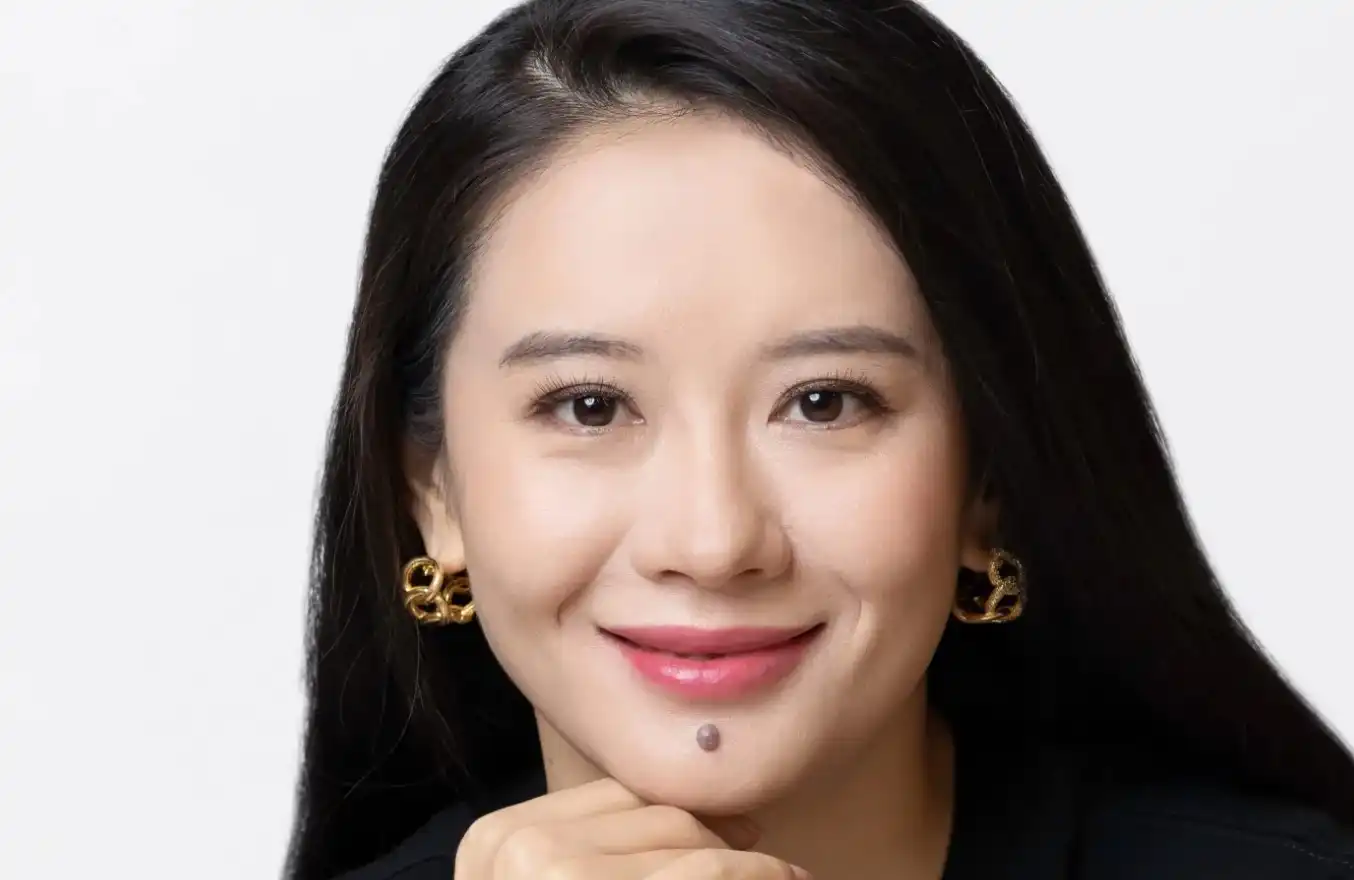Crypto Leader Emerged from the Kerosene Lamp: He Yi's Comeback Life and the Guardian Battle of the Crypto Empire
Original Title: How Binance's Yi He became 『the most powerful woman in crypto』—and steered the company past its biggest ordeal
Original Source: Fortune
Original Translation: CryptoLeo, Odaily
Editor's Note: Fortune recently interviewed Binance co-founder Yi He, covering Yi He's efforts in the crypto space, as well as the situations Yi He faced with CZ both at Binance and after CZ's departure. Odaily has provided a translation of the original article.
In the 1980s, when Yi He was still a little girl, she needed to fetch water from the well and sometimes relied on kerosene lamps for lighting. Fast forward to today, Yi He has become a celebrity in the eyes of millions of Chinese people and is now a billionaire with a 10% stake in the world's largest cryptocurrency exchange, Binance. As a co-founder and executive of Binance, she wields significant influence within the company. However, her life has not been easy.
Binance's other co-founder, CZ, was imprisoned in the U.S. last year as part of a $4.3 billion plea deal. This situation presented a significant business challenge for Binance and Yi He. For Yi He personally, CZ's imprisonment was also a painful experience as CZ was not only the CEO of the company but also the father of her young child.
Today, Binance has overcome this hurdle. CZ has completed his sentence. While CZ's plea deal dealt a blow to Binance that could have paralyzed most companies, Binance remains the world's largest cryptocurrency exchange. Yi He played a key role in guiding Binance through this period, and after years of wielding power behind the scenes, she is now stepping into the forefront to publicly manage Binance.
In this rare interview, Yi He shared with Fortune her journey from a poor rural girl to a cryptocurrency billionaire, the trials she faced during the Binance crisis, and her vision for this industry that is rapidly transforming the global financial landscape.
Chief Customer Officer, Approachable Yi He
Throughout Yi He's life and career, she has overcome many obstacles, one of which was learning English. It wasn't until four years ago, when Yi He was in her thirties, that she began learning English. In a lengthy Zoom interview, Yi He performed well, only occasionally relying on her interpreter to explain a certain Chinese idiom or proverb.
He Yi is well aware of the power of communication. At Binance, she is renowned for her outstanding marketing and customer service skills, which have helped Binance become the world's largest exchange in less than a year. To this day, she takes pride in listening to customer feedback on platforms like Telegram, X, WeChat, and any other place where Binance customers may be found, and insists that others at Binance do the same. She requires everyone joining Binance to spend a few weeks on the front lines of customer service, a rule that has become well known.
In an interview, He Yi discussed a recent incident involving a college student who mistakenly sent $500 worth of cryptocurrency to the wrong wallet, a common error in the crypto community that often results in funds being irretrievable. However, He Yi took the time to trace and recover the sent funds. She recalled the student saying to her, "To you, this money may be a drop in the bucket, but to me, it's everything."
He Yi mentioned that due to her upbringing in a poor family in Sichuan Province, she could empathize with such experiences. She lost her father at the age of 9 and at 16, she would spend long hours outside supermarkets selling soft drinks. Despite eventually making it to college (she paused, reminiscing about the joy of first entering a library) and becoming a television host, she expressed that her background allows her to still relate to many of Binance's lower-income customers.
He Yi's story brings to mind Jennifer Lopez's song "Jenny From the Block," which tells the tale of a beautiful woman who, even after achieving fame and success, remains grounded—a storyline that resonates with many Americans.
However, Eowyn Chen, CEO of cryptocurrency company Trust Wallet (who previously worked with He Yi at Binance), believes the situation is different in China. Eowyn Chen thinks that Chinese people are less inclined to support the underdog and more likely to insult those who surpass their own status. He Yi is often the subject of articles and social media ridicule, attempting to belittle and mock her, but her response is to return negativity to those spreading it.
She tells people, "Of course, I come from humble beginnings, but I am successful. Why can't you be?"
He Yi has been hailed by Bloomberg as the "Most Influential Woman in Crypto," rising to the top of the blockchain world with her intelligence, determination, and confidently bold personality—a set of qualities she shares with her co-founder and romantic partner, CZ.
The Creation of Binance
When CZ created Binance in 2017, he established a distinctive public image using the name "CZ," which is now widely recognized by most people. CZ has built the "CZ Myth" by taking significant risks (such as selling his house in Shanghai in 2014 to buy more Bitcoin) and enthusiastically engaging in the daily banter of the online community known as "Crypto Twitter."
During the early days of Binance, CZ invited He Yi to join the team. However, He Yi had previously recruited CZ a few years ago, convincing him to join OKCoin (now OKX) as the Chief Technology Officer in 2014. Both individuals share a passion for cryptocurrency but also have other similarities. CZ and He Yi both spent their early years in unheated rural schoolhouses until CZ's father immigrated to Canada and their living conditions improved. CZ worked minimum wage jobs at Chevron and McDonald's during high school. CZ also tends to clap back at those who mock his background, even retweeting meme pictures of himself in McDonald's uniform.
It was during their time at OKCoin that the two became a couple and accumulated extensive experience in large-scale cryptocurrency operations. Today, this unmarried but still romantically involved pair, both as parents and business partners, closely collaborate. The Wall Street Journal reported that He Yi and CZ jointly own YZi Labs, Binance's venture capital arm, and hold at least a 10% stake in the parent company.
Regarding her relationship with CZ, He Yi requested anonymity and provided a written statement: "My personal life is separate from my career. As a co-founder, my achievements and abilities are often questioned because of my personal life," she wrote, emphasizing that Binance has 280 million users.
Regardless of how this relationship is on a personal level, it has proven to be highly effective professionally. He Yi's role at Binance is roughly equivalent to Sheryl Sandberg's position at Facebook. Sandberg helped establish the company in its early days and assisted the then-immature CEO Mark Zuckerberg in finding his footing.
In practice, this means that CZ plays the role of Binance's legendary spokesperson and product visionary, while He Yi drives Binance's substantial growth through active promotional activities (including car giveaways). Her approach has been well-received by the overseas Chinese community as well as individuals in China. In China, cryptocurrency, despite being prohibited in some aspects, remains very popular, partly because it is an easily transferable asset not bound by government regulations.
An anonymous Binance employee described He Yi as a strict boss who also supports employees and advocates for those around her. When discussing Binance's daily operations, He Yi stated that the company's core principle is "Founder Culture," which is a term used in the tech industry to describe companies that have maintained the spirit of early-stage startups.
For Binance, its early development benefited to some extent from its willingness to swiftly evade regulation and frequently move from one country to another under government scrutiny. While this strategy propelled Binance's astonishing growth, it sometimes also became the company's biggest weakness — ultimately leading to the loss of its most prominent founder.
The Post-CZ Era of Binance
By early 2023, the situation had become increasingly dire. The previous year, following the collapse of FTX, owned by SBF, the U.S. government intensified its efforts to introduce policies targeting the cryptocurrency industry, with a particular focus on the industry's largest player, Binance. For years, the company's lawyers had been in discussions with the Department of Justice regarding various charges, eventually reaching an agreement.
In September 2023, U.S. regulatory agencies announced a comprehensive settlement agreement that not only required Binance to pay a fine of up to $43 billion (the largest such fine in the company's history), but also forced CZ to resign from his position as CEO of Binance and admit to failing to implement adequate anti-money laundering measures. Meanwhile, both The Wall Street Journal and Reuters cited multiple anonymous sources who claimed that regulatory agencies were also trying to force He Yi to leave Binance ('Binance's plea agreement with U.S. regulatory agencies is public,' a company spokesperson said.)
Despite facing significant blows to its finances and leadership, two years later, under the leadership of CZ's successor, Richard Teng, Binance remained the largest cryptocurrency exchange platform to date. Richard Teng, a former senior regulatory official in Singapore, helped Binance implement a series of compliance measures and shaped a new image, indicating that the company had moved away from its early fast and loose tactics. In January of this year, Binance took a significant step — it introduced a formal board structure for the first time, consisting of seven members including Richard Teng and three independent directors.
Nevertheless, a former employee of the company told Fortune that power at Binance still lies with early executives (CZ, He Yi, and two other early Binance executives Lilai Wang). The employee added that He Yi has the final say on all personnel matters and holds the greatest power in customer experience decisions. Meanwhile, a Binance spokesperson stated that this assertion is not accurate and that the company's culture encourages employees to exercise a high degree of autonomy.
At the same time, a venture capital firm's founder described Binance as a company run with an "iron fist," despite facing new regulatory constraints and the challenges of operating a vast global business, the company still maintains its position as the market leader. This assessment seems to be supported by recent data provided by CoinGecko, which shows that despite new competitors emerging, Binance still holds the largest share of trading activity — in June, Binance accounted for 39% of the centralized exchange trading volume.
For Yi He, Binance's continued dominance is a validation of her "customer-first" strategy and a testament to the company founder's personal belief in cryptocurrency — she believes in the transformative power of this technology, comparable to the impact of the internet on traditional media and television.
Yi He predicts that cryptocurrency will accelerate its penetration into the traditional financial system through stablecoins and other blockchain technologies, and in the next five to ten years, these two areas will undergo full integration.
On a personal level, Yi He stated that the widespread adoption of cryptocurrency makes her feel like she is experiencing another major technological revolution, similar to when she was a teenager not long ago, a time when her home had no electricity or running water.
Reflecting on her journey, Yi He quoted a line from the poet Xu Zhimo: "If you have said good, do not say pain again."
Welcome to join the official BlockBeats community:
Telegram Subscription Group: https://t.me/theblockbeats
Telegram Discussion Group: https://t.me/BlockBeats_App
Official Twitter Account: https://twitter.com/BlockBeatsAsia
 Forum
Forum

 Finance
Finance
 Specials
Specials
 On-chain Eco
On-chain Eco
 Entry
Entry
 Podcasts
Podcasts
 Activities
Activities
 OPRR
OPRR








